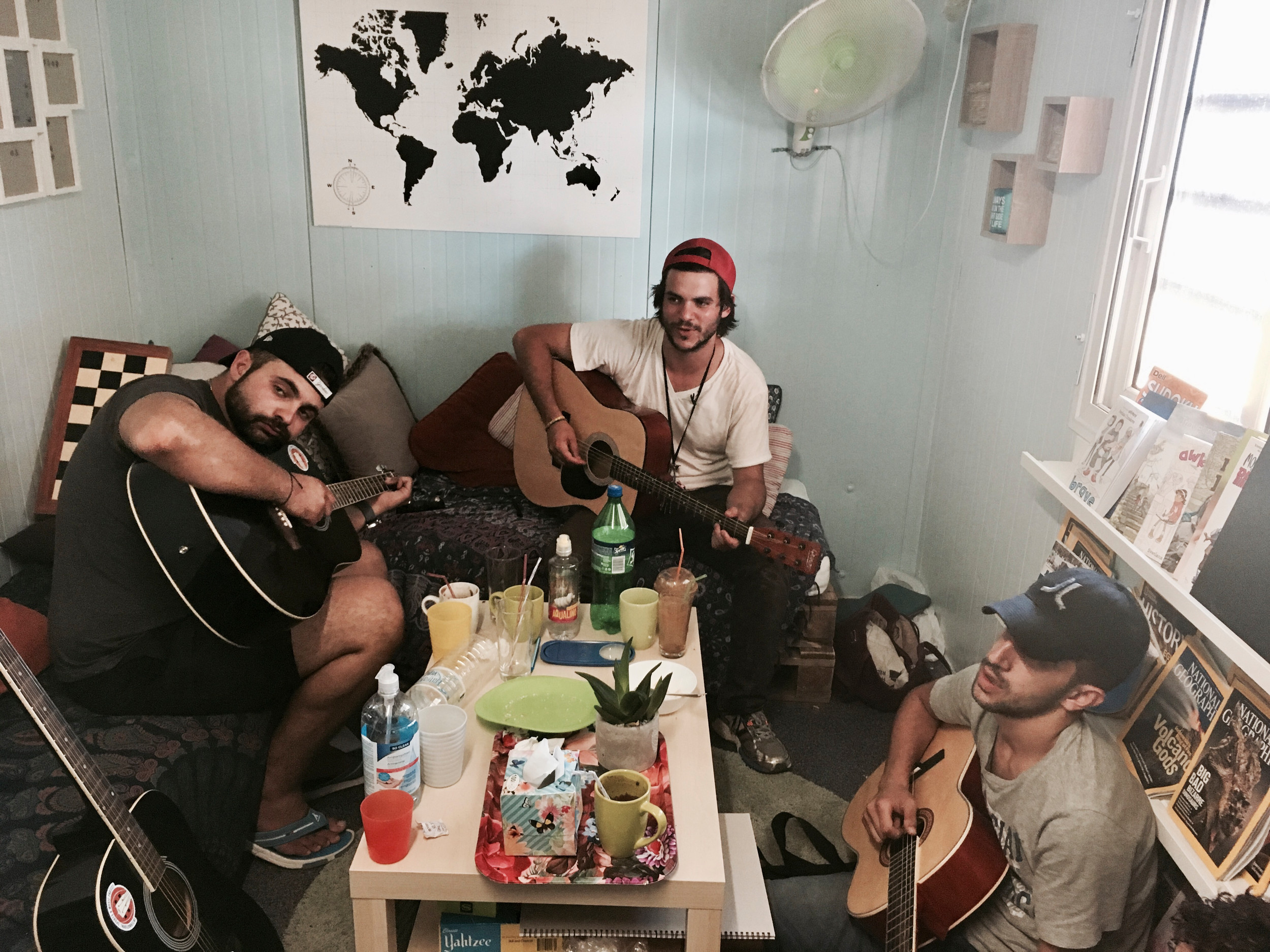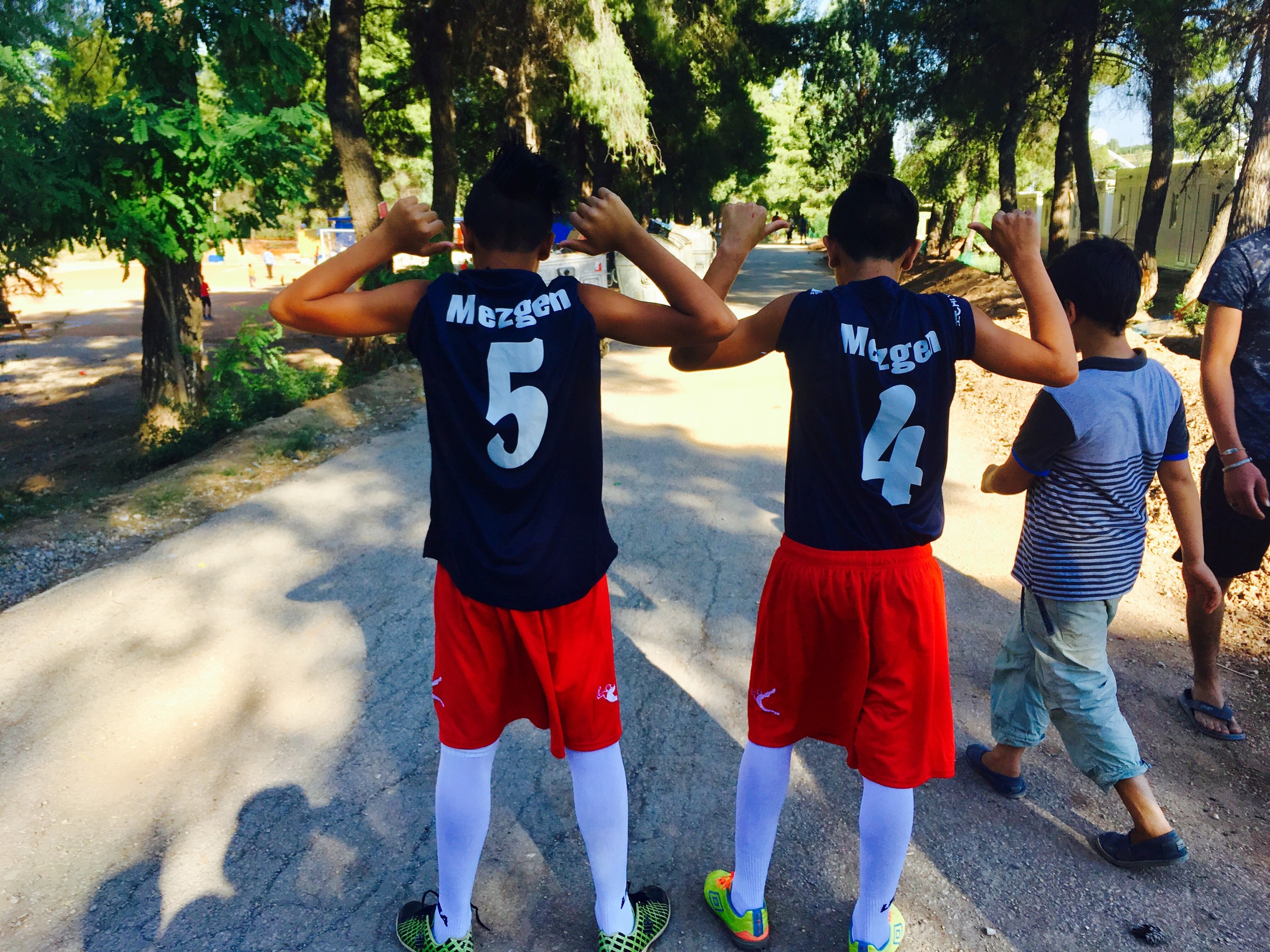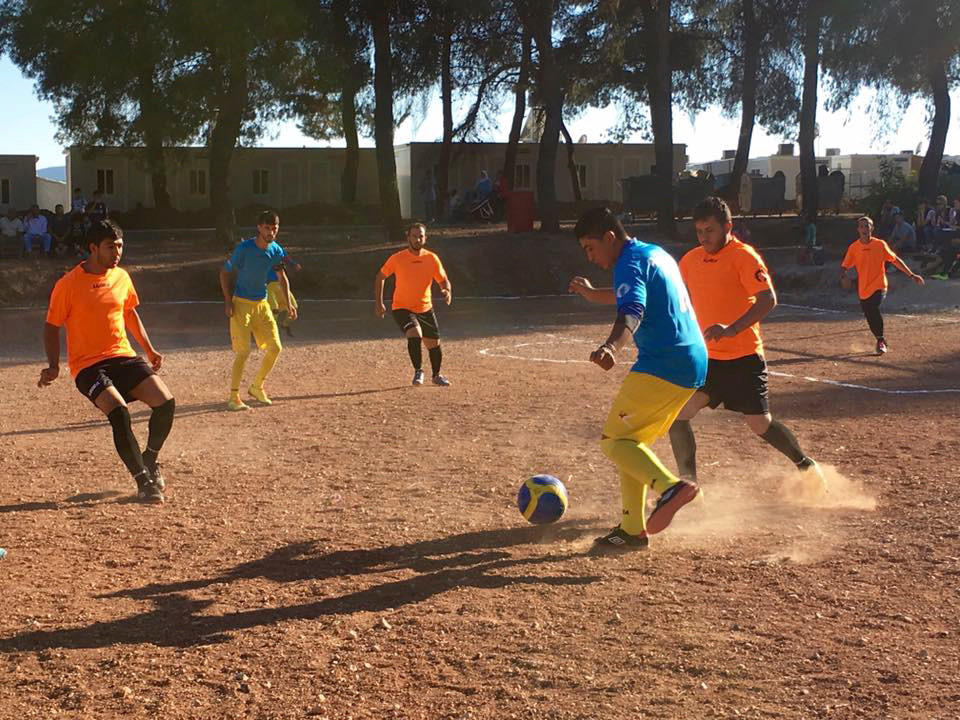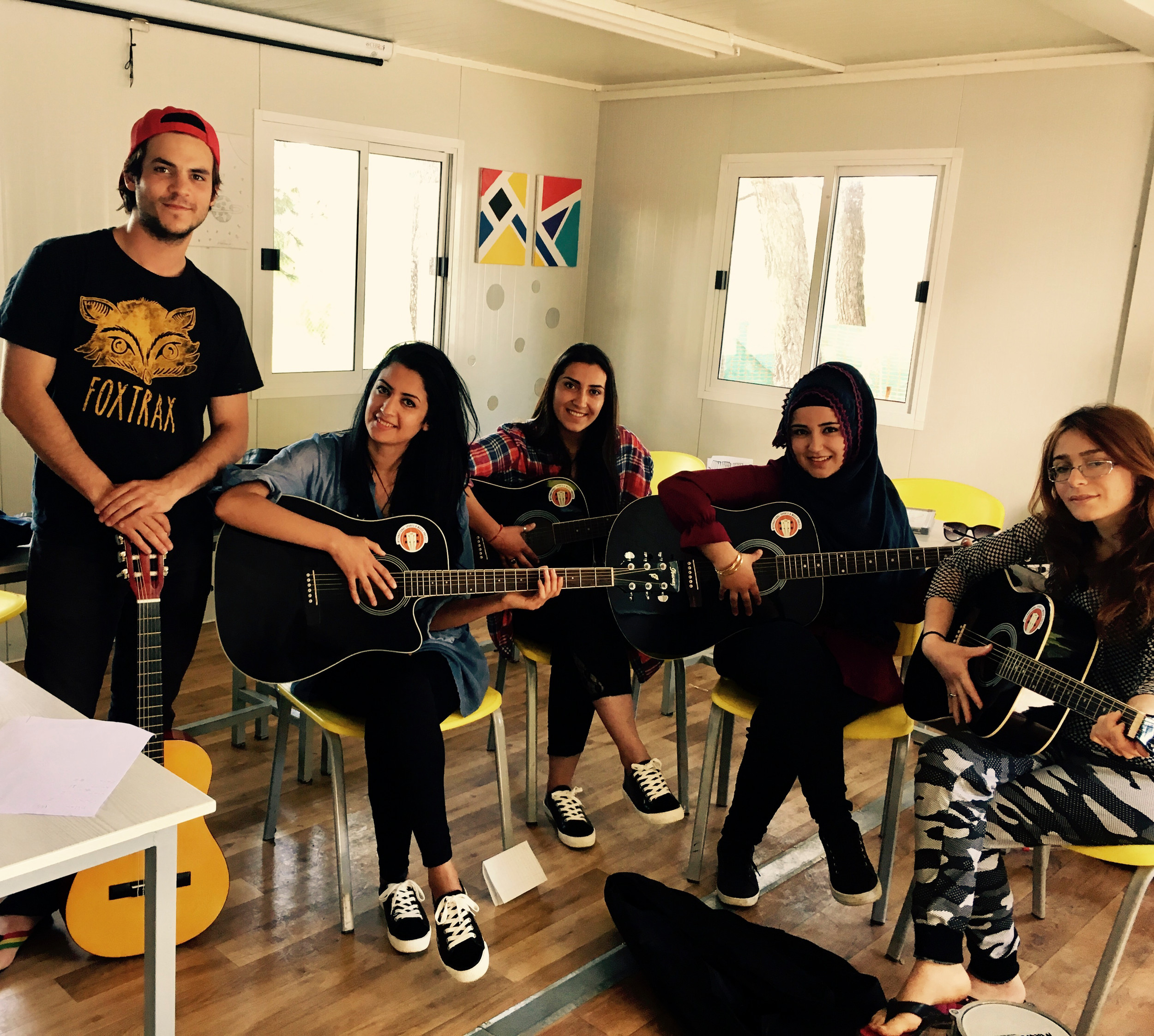Oceansider brings soccer and music to Syrians in Greek refugee camp
“Here’s the cup,” Oceansider Jason Steinberg said as he handed the Kurdish soccer team captain the tournament victory trophy. The man, named Hashem, raised it in the air and bellowed at the top of his lungs. The refugee camp erupted.
Nearly 800 mostly Syrian men, women and children, stranded at the Ristona camp in southern Greece, hugged, shouted and cried. No one thought the Kurdish team — named Rojava, after the autonomous breakaway nation in northern Syria that its members came from — would win. But after three days of tense and emotional matches, the underdogs prevailed.
“It was pandemonium,” Steinberg, 24, recalled. “I think it was the most excitement I’d seen there aside from the Eid [al-fitr] party, which is the end of Ramadan.” And it capped Steinberg’s nearly two months at Ritsona, where, as founder and executive director of the nonprofit International Sports and Music Project, he helped facilitate the construction of a soccer field and create a music program for camp residents.
Although expansion into Ritsona was a new endeavor for his budding organization, which was founded in the summer of 2015, Steinberg, a 2010 Oceanside High School graduate, does his best to avoid the pitfalls of mounting an aid project with preconceived notions of what the recipients need.
“We are solution-agnostic,” he said of ISMP’s philosophy, but its core goal, wherever it operates, is to provide emotional outlets for the impoverished or displaced through sports and music. “I try to stay humble about the impact we’re having,” he added. “Because I know we’re not helping [the refugees] get asylum, we’re not reconnecting them with their families, which is what they really want.”
But he does know that his organization is meeting a need for those escaping the trauma of a grinding civil war, stuck in limbo with large stretches of idle time and no activities. “What we’re providing is relief during that time,” he said. “ … We can’t do everything, but we do want to give them something to look forward to when they wake up in the morning. We want to provide something for the community to feel good about.”
Achieving that goal, however, was a challenge from the start. Steinberg knew soccer would be the sport of preference for the camp’s residents, and planned to build a field. Children, teenagers and adults were already playing on a makeshift pitch when he arrived in early May, but the conditions were poor.
“Literally every day we’d be playing soccer, and without fail, people would come up to me after, bleeding with leg injuries,” he recounted. “They’d say, ‘Come on, I know you’re the soccer people, you’ve gotta do something.’”
The field was covered in slippery, sharp rocks, so for weeks Steinberg would wake up at 5 a.m. with roughly 50 residents armed with rakes, shovels and wheelbarrows, and try to clear the field. But it wasn’t enough. Steinberg had the resources to clear a new field, but the logistical obstacles were manifold. It was, he said, “An exercise in rolling with the punches.”
Ritsona, which sits on the site of a former Greek air force base, is co-managed by the Greek government and the International Organization for Migration, an intergovernmental organization. Both must give permission before any physical modification is made to the camp.
While the Greek government was amenable, IOM was concerned about angering benefactors in the United Arab Emirates, a wealthy monarchy in the Persian Gulf that is the camp’s chief sponsor. They had already promised a soccer field for the refugees, but it never came.
Finally, after much prodding and a bit of luck, Steinberg said, IOM relented, and with the help of the not-for-profit Echo 100 Plus, ISMP’s main partner in the camp, a new dirt field was built early this June.
Then came the challenge of organizing a soccer program. Some of the work had already been done. Café Ritz, a team made up of the best players in the camp and the favorite to win the tournament, was already up and running. Others needed to be equipped with the necessary shoes and clothing, but that came with its own challenges.
“The first day I gave out soccer shoes was probably the most traumatic day of my life,” Steinberg said. “I would hand out a few, and soon a crowd of 60 or 70 kids had gathered around me, asking, ‘My friend, please give me shoes.’” He didn’t have enough.
Steinberg treated it as a learning experience, and later delegated the distribution of equipment to team captains. He realized he had been setting himself up to fail by not incorporating the camp’s residents in his work.
The music program, the other half of ISMP’s work, went far more smoothly. Roughly 35 camp residents signed up for music lessons. They now have the opportunity to learn guitar, keyboard or drums in hour-long lessons twice a week.
In a camp populated by a diverse group of refugees where language can be a barrier, Steinberg said he was heartened to see them interact through music. “It brings people together through non-verbal communication,” he said.
The majority of the camp’s population is Syrian Kurds. Ever cognizant of the need to provide comfort and dignity to the refugees on their own terms, Steinberg is currently looking to procure a handful of buzuqs, a traditional Kurdish stringed instrument, for them to play.
All told, he has provided nearly 40 instruments, 135 pairs of cleats — half for children, half for adults — and roughly the same number of jerseys and shin guards. When he leaves, he hopes the programs he helped organize will become self-sustaining and are expanded to other Syrian refugee camps.
It was the Syrians he always wanted to help, he said, by providing them with outlets they desperately need. “If you were to Google ‘Syrian refugees mental health,’” he said, “you’d see 10 articles about how there’s nothing being done, but we’re doing something about it, and we’ve seen that the results are real.
“We want to make sure we continue filling that gap,” he continued. “As other organizations continue pulling out of camps, as the news stops talking about it, we’re going to make sure we continue staying there.”
During the soccer tournament, he recalled, tensions ran particularly high in the semifinals, when a team that was several goals behind threatened to quit with a few minutes left to go. Steinberg was serving as a referee. “Look, guys I’m doing my best to be fair here,” he pleaded. “Sorry if I missed a few calls.”
Later, two larger members of the team — brothers who went by the names Ahmed and Amir — apologized for their behavior and sat him down to smoke hookah with them. “They said, ‘Listen, we’ve been looking forward to this for a long time, and soccer’s really important to us.’” Steinberg recounted. “And for me that was all the validation I needed.”
If you would like to donate to the International Sports and Music Project visit https://ismproject.nationbuilder.com/













